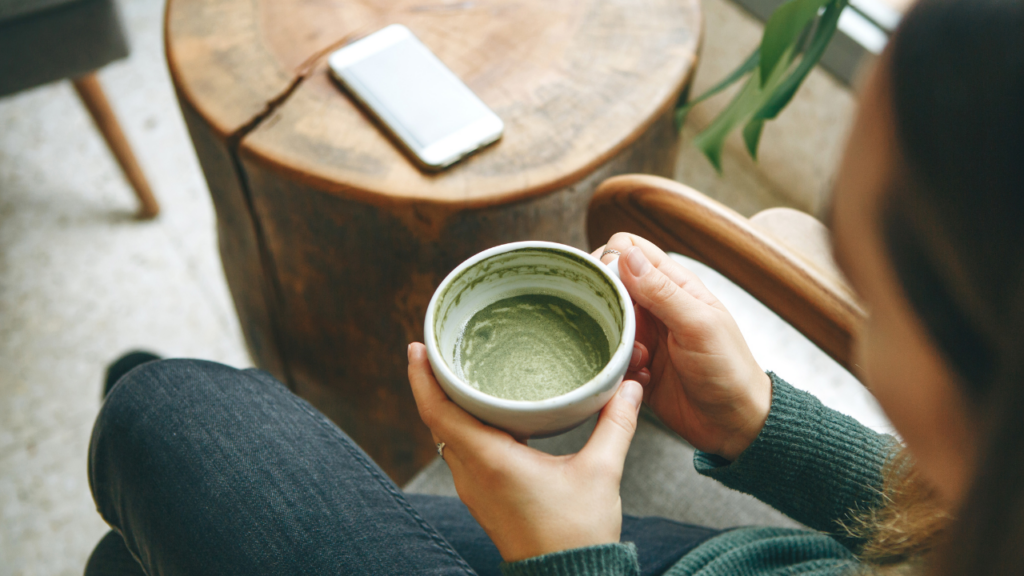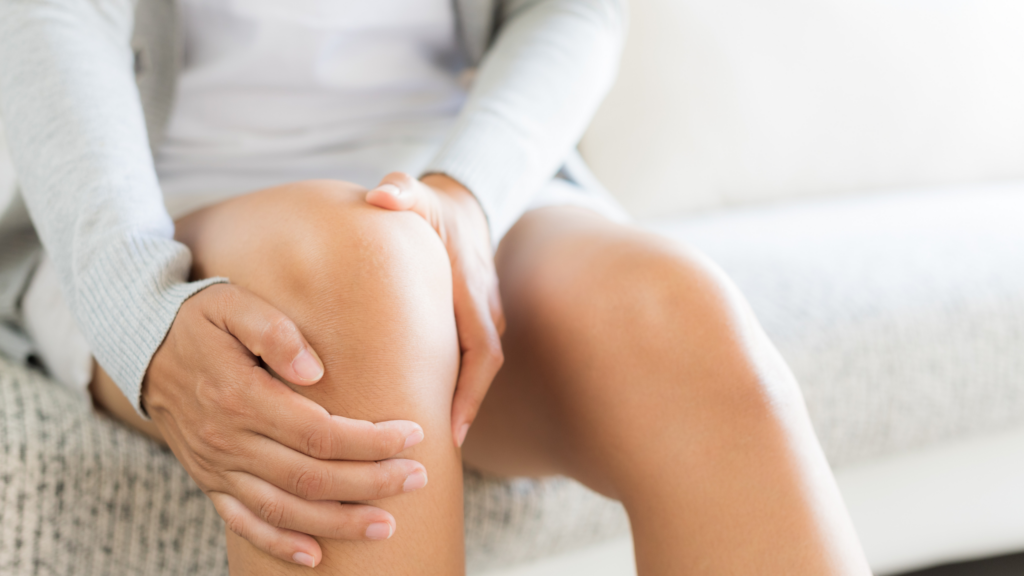Hormones & Your Circadian Rhythm
Published on March 16, 2023 by Belle Kuhn
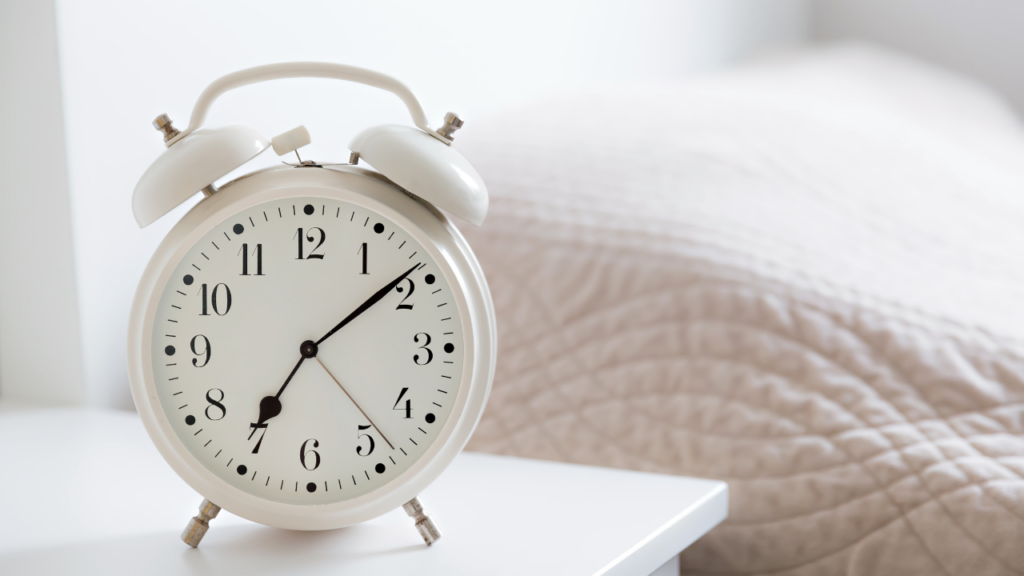
What is Circadian Rhythm?
Circadian rhythm is a technical term for your body’s “internal 24-hour clock.” It dictates your sleep-wake cycle and affects alertness, tiredness, memory, eating habits, digestion and hormone levels. The circadian cycle is controlled by light exposure specifically to the eyes. When light hits certain cells on the retina it actually sends information to the brain about what time of day it is. This includes sunlight, blue light and darkness which all indicate to your brain when to release melatonin (the sleep hormone).
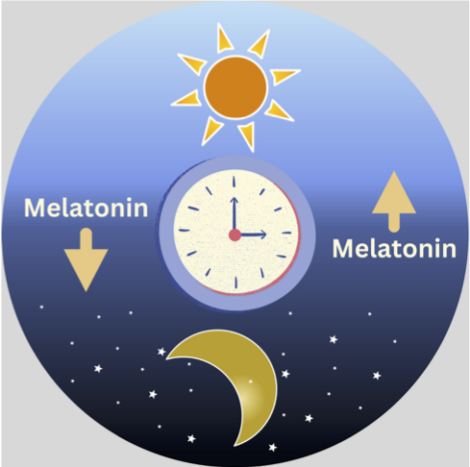 The Importance of Melatonin
The Importance of Melatonin
The pineal gland produces melatonin to help you get to sleep and we know how important a quality night’s sleep can be. Sleep affects energy levels, cardiovascular health, emotional state, appetite, metabolism, and immunity just to name a few.
Because melatonin is technically a hormone, it can also influence the level of other hormones and when they get produced. It plays a role in thyroid health, menstrual cycle patterns and other reproductive hormone functions. Supplementing with melatonin in excess can lead to hormone imbalances, so it’s best to regulate your levels naturally when possible.
How to Reset Your Circadian Rhythm Naturally
SUNLIGHT • BLUE LIGHT • DARKNESS
 Sunlight
Sunlight
he most natural sleep-wake cycle is from dusk till dawn. This even applies to long winter nights when we should be getting more sleep than in the warmer, sunnier months. You can make sunlight work to your advantage and reset your circadian rhythm by exposing yourself to sunlight first thing in the morning for at least 10 minutes. This tells your brain to stop producing melatonin and triggers alertness for the day.
A simple way to do this is by sleeping with the blinds open so the sunlight can shine in when you wake up. If that’s not an option because of outside lights, make sure to open the blinds and curtains in your house wherever you spend your morning. An even better option is to sit outside for a bit or go for a morning walk.
Sunlight exposure shortly after walking will also reduce the time it takes to fall asleep at night and improve overall sleep quality. This has been scientifically proven time and again, more recently by the National Institute of Health in 2019. They also found a correlation with the amount of time spent exposed to sunlight had a direct effect on melatonin levels produced in the evening and sleep efficacy.
Blue Light
The time of day is not the only factor. The type of light has to be sunlight or another source that falls on the natural spectrum of light composition. For instance, long periods of exposure to blue light or LED lights from computer screens can drastically interfere with a healthy circadian rhythm.
With such a large portion of our time on computers and phones, it’s no wonder why sleep is a bigger issue now more than ever. Luckily, there are some easy hacks to decrease blue light exposure throughout the day.

How to Decrease Blue Light Exposure
1. Change your settings.
Set your phone and computer to night mode permanently. The warmer the backlight is, the better it is for your eyes. This may take some getting used to, but the benefits outway the temporary adjustment period. There are also blue light blocking screen protectors available for both phones and computers.
2. Avoid fluorescent lights.
If your office or workspace has fluorescent overhead lights, keep them off and supplement with floor lamps and windows if possible. If not, suggest UV fluorescent light filter covers for them that reduce the emission of blue light.
Limit time spent in department stores and grocery stores. You can keep your sunglasses on while in stores or opt for online shopping.
3. Get blue light blocking glasses.
These are great to have on hand when you can’t control your environment. You can use them when watching TV with family, for extended screen time at work or while traveling. They’re not all created equal, so invest in a high quality pair that blocks at least 95% of blue light. You can even get them built right into your prescription lenses now.
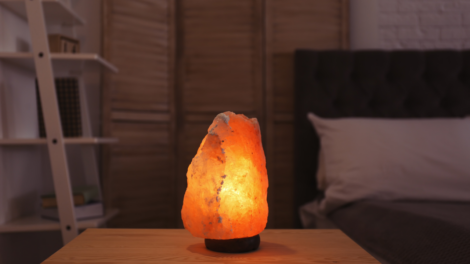 Darkness
Darkness
Historically, humans didn’t have the option to stay up all night binging on their favorite series or watching funny cat videos at 3am. We spent the day exposed to natural light and it was easy to fall asleep when the sun went down as long as you had a safe place to rest your head. With a little planning, we can get back to our ancestral roots and reset the internal clock.
Hopefully you’re starting the morning with natural sunlight and avoiding artificial light throughout the day. Closer to bedtime, we can use darkness to signal to the brain that we’re getting ready to go to sleep. This helps activate the pineal gland to produce melatonin and relaxes the body and mind to prepare for a good night’s rest.
A good general rule is to cut the lights about 2 hours before you want to be asleep. Dim, warm lighting is ok at this time. Having a small night light in the bathroom and hallway is a good idea if you often wake up to use the restroom. This way you won’t have to turn on any major lights.
If you watch TV before bed, you can change the display settings to a dimmer, warmer picture or use the blue light blocking glasses to enjoy a show.
What to Expect
Resetting your circadian rhythm can take as little as a few days or up to a few weeks. The key is to be as consistent as possible with proper light exposure at the appropriate time of day. Having a set sleep schedule will help speed up the process. If you start with getting up at the same time every day and follow these simple steps, falling asleep and staying asleep will be sure to follow.
Need extra support?
We can help! Many patients come to us for help with their sleep issues and hormone imbalance. We see significant improvement with functional medicine and acupuncture treatments.
Need extra support?
We can help! Many patients come to us for help with their sleep issues and hormone imbalance. We see significant improvement with functional medicine and acupuncture treatments.
References:
- Gordon J, Morley JE, Hershman JM. Melatonin and the thyroid. Horm Metab Res. 1980 Feb;12(2):71-3. doi: 10.1055/s-2007-996203. PMID: 7372268.
- Blume C, Garbazza C, Spitschan M. Effects of light on human circadian rhythms, sleep and mood. Somnologie (Berl). 2019 Sep;23(3):147-156. doi: 10.1007/s11818-019-00215-x. Epub 2019 Aug 20. PMID: 31534436; PMCID: PMC6751071.
- Wahl S, Engelhardt M, Schaupp P, Lappe C, Ivanov IV. The inner clock-Blue light sets the human rhythm. J Biophotonics. 2019 Dec;12(12):e201900102. doi: 10.1002/jbio.201900102. Epub 2019 Sep 2. PMID: 31433569; PMCID: PMC7065627.



